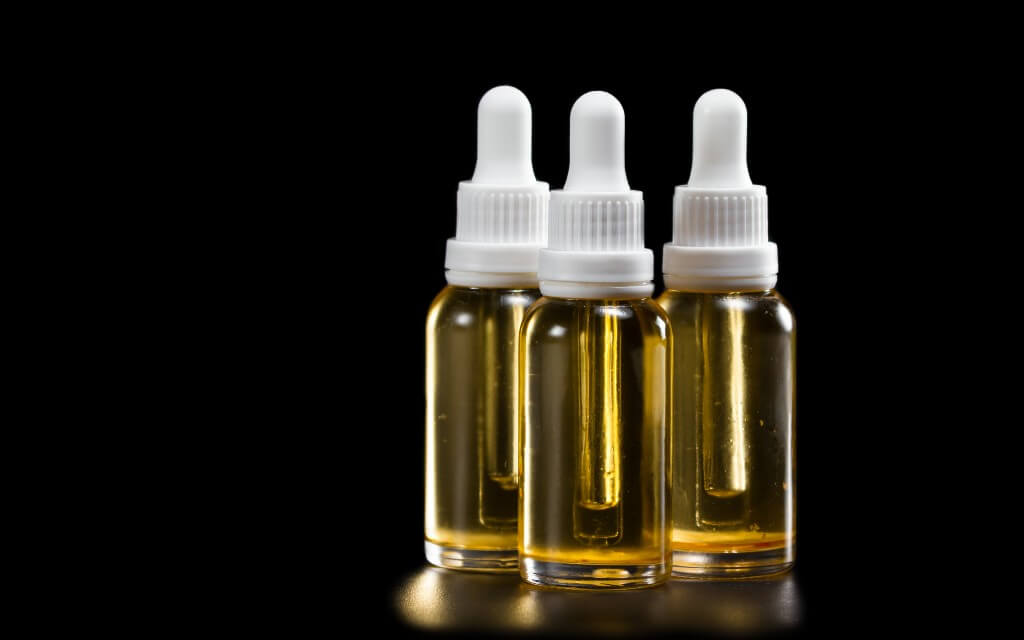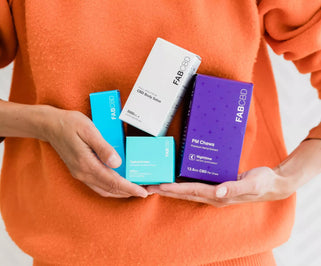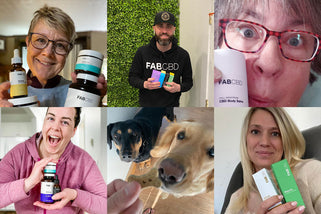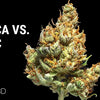We have witnessed a monumental rise lately in the adaptability of THC-based products. THC stands for tetrahydrocannabinol and is the psychoactive ingredient in the cannabis plant, responsible for giving the sense of a euphoric high to its users.
THC products such as gummies, salves, oils, tinctures, and gels have definitely caught people’s interest over the years. The Farm Bill 2018 has restricted the use of THC from marijuana plants but has allowed a concentration level of 0.3% THC if it’s extracted from hemp plants. In this regard, federal law has a clear stance on the use of THC, but its acceptance and legality vary from state to state.
Despite THC’s popularity, even its ardent users are still baffled by the different types of THC that exist in the cannabis plant. THC, like cannabidiol (CBD), is derived from the cannabis plant and is widely used for industrial, commercial, and recreational purposes.
So far, the most potent THC, Delta 9, has been a hit among consumers. But are there any other THC types that are extracted from cannabis? How strong are they? Do they offer any different results? The answer, my friends, is laid out for you below.
How is THC Extracted?
There are over 100 cannabinoids present in the cannabis plant, but the two most important ones, CBD and THC, are extracted carefully through the highly efficient CO2 extraction method. If THC products are to be made successfully, the THC, terpenes, and other cannabinoids should be carefully extracted and preserved from the cannabis plant.
The cannabis plant contains THC in its acidic form called THCA, the most abundant non-psychoactive cannabinoid found in cannabis. So for making a THC product, the flowers of the plant are heated to turn the acidic form of the cannabinoid into an active version of it. This process is called decarboxylation, and it allows THC to actively interact with the body’s Endocannabinoid System (ECS). Once THC is extracted, it can be added or infused into a range of products and delivered to consumers.

How Many THCs Are There?
What we need to keep in mind is that THC is a compound with many variations. These different variations of THC are often referred to as ‘chemical analogs,’ and each analog differs slightly from the other, with its own varying effects. Each analog or THC type binds with the CB1 and CB2 receptors present in the ECS, which serves to bring homeostasis, a state of optimum balance, in the human body.
This happens because THC’s molecular structure is like the endocannabinoids already manufactured and present in the human body, which allows THC to attach itself to the cannabinoid receptors in the ECS.
Delta 8
Delta 8 (∆8) is a double bond isomer of Delta 9 THC. What is an isomer you may ask? An isomer is a compound that contains a similar number of atoms and elements but differs from the other compound in the way of the arrangement of atoms. Delta 8 THC binds with both CB1 and CB2 receptors but does not carry the same potency as Delta 9.
Its effects are said to be milder compared to Delta 9, and hemp-extracted Delta 8 THC is legal on a federal level since the Farm Bill was passed in 2018. So if you’re on the lookout for a THC that doesn’t give you an extreme high, try THC products containing Delta 8 THC to minimize the euphoric effect and reap other benefits of this variant.
Delta 9
When people speak about THC, it is automatically considered as Delta 9 (∆9) because it’s the most widely known THC variant in the cannabis space. This is the psychoactive variant of THC that people talk about when they mention THC products. It binds with the CB1 receptors in the ECS and affects the functioning of the nervous system, which directly alters our sensory experiences, such as pleasure and memory.
The reason that Delta 9 gives the feeling of high is because it contains a ninth carbon atom with a double bond which easily binds to the CB1 receptors, giving the user a greater sense of euphoria. Hemp-derived products in the United States can only legally contain up to 0.3% Delta 9 THC as per federal law, while THC percentages from marijuana products may vary from state to state.
Delta 10
Delta 10 (∆10) THC produces the least amount of euphoric effects after Delta 9 and Delta 8 THC variants. It is one of the mildest forms of THC, but it still possesses properties to give you the buzz. Delta 10 THC’s presence in the cannabis plant is almost negligible, and therefore it is often made in labs. Since it is a new and emerging cannabinoid, its usage and acceptability in the THC space is low.
THCA
THCA serves as the base for the birth of Delta 8 THC, Delta 9 THC, and THCV. It is the acidic part of THC and doesn’t produce any mind-altering effects like Delta 8 or Delta 9 THC. This is because THCA’s molecular structure is not entirely complementary to the receptors present in the ECS. This means THCA cannot bind to the receptors the same way and produce psychoactive effects on the body.
When THCA is heated, it goes from an acidic state to its natural state and easily binds with the CB1 and CB2 receptors in the ECS. This change in the state gives us Delta 8 THC, Delta 9 THC, and THCV.
THCV
Tetrahydrocannabivarin (THCV) is another one of the THC variants that doesn’t produce the buzzing effects in the mind or body. THCV comes into existence after the further breakdown of THCA through the process of decarboxylation, but if you’re looking for a more intense sense of euphoria, you might have to up the ante with THCV since a low dosage will not work. THCV is slowly gaining popularity, but its usage among consumers is still on the lower side.
THCP
Tetrahydrocannabiphorol (THCP) is the new cannabinoid kid on the block. Its unique selling point is its impressive binding ability with the CB1 receptors, even better than Delta 9 THC. This allows THCP to give you an intense euphoric effect. THCP’s potency outweighs Delta 9 THC, which has a five-term alkyl side chain of five carbon atoms. After the discovery of THCP, it is now established that this new cannabinoid has a seven-term alkyl side chain of seven atoms.

How to Know Which THC Type is Best for You?
Hemp plants contain low levels of THC, while marijuana plants contain THC in abundance. If THC is within the federal limit of 0.3% and is extracted from hemp plants, all is well, but if it’s extracted from marijuana, the law varies from one state to another. Since the laws vary state to state, your first step in finding the THC type that works for you is to research whether your state allows the selling and purchase of THC in the first place.
If you’re a beginner, it is always better to try products with low concentration levels of THC and slowly work them into your lifestyle. There is an array of FAB CBD products to explore in the CBD space, and once you’re comfortable, you can always expand your horizons and choose Delta 9 THC products.
Can any Certain Type of THC Cure Hangovers?
Alcohol hangovers are the worst. But before you jump in to save the next day with some THC products, you should know that mixing or crossing alcohol with THC might just not be an appropriate way to nurse your hangover. Eating THC edibles or applying salves might help you relieve the muscle pain after a tiring night but smoking or vaping THC might not be the most judicious way of curing your hangover. Despite all the noise circulating about THCs effectiveness to help with your hangover, it is crucial to understand that there is no significant scientific evidence on this.
Final Thoughts
The THC space is slowly opening its door to newer possibilities. Delta 9 and Delta 8 have so far been the most acceptable variants of THC, but THCV and THCP are slowly picking up pace and gunning for a larger share of the market. When you think about buying THC products, it is always advised to research the brand and the THC variants that it uses in its products. It has become standard for brands to use high-quality hemp to extract THC so that it falls within the ambit of federal law’s policy of 0.3% THC content, but you’ll need to double check for yourself since these products aren’t regulated by the USDA. Once you’re clear on what’s available in your state and what type you’re after, you’re well on your way to finding the right form of THC for you.







